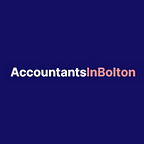Choosing the Right Accountants for Efficient Self-Assessment Tax Returns
In today’s complex financial landscape, self-assessment tax returns can be a daunting task for many individuals. The intricacies and ever-changing regulations make it crucial to have the right guidance and support when filing your taxes. This is where self assessment tax return accountants come into play.
Accountants are trained professionals who specialize in handling financial matters, including tax preparation and filing. They possess the knowledge and expertise to navigate through the complexities of tax regulations, ensuring that your self-assessment tax return is accurate, efficient, and compliant with all legal requirements.
Why is choosing the right accountant important?
Choosing a competent accountant is essential for several reasons:
- Expertise: Self assessment tax return accountants are well-versed in tax laws and regulations, enabling them to identify potential deductions or credits that you may overlook. Their expertise ensures that you take full advantage of all available opportunities to minimize your tax liability.
- Time-saving: Filing a self-assessment tax return can be time-consuming, especially if you’re unfamiliar with the process or have multiple sources of income. By hiring an self assessment tax return accountants, you can delegate this responsibility to a professional who will handle it efficiently while freeing up valuable time for other activities.
- Accuracy: Mistakes on your self-assessment tax return can lead to penalties or unnecessary audits from HM Revenue & Customs (HMRC). An experienced self assessment tax return accountants will meticulously review your financial information, minimizing errors and ensuring compliance with all reporting requirements.
- Peace of mind: Taxation can be stressful for many individuals due to its complexity and potential consequences of non-compliance. By entrusting your self-assessment tax return to a qualified accountant, you gain peace of mind knowing that an expert is managing this critical aspect of your finances.
How do I choose the right accountant?
Selecting the right self assessment tax return accountants requires careful consideration based on various factors:
1) Qualifications and Experience
When choosing an accountant, look for professional qualifications such as ACCA (Association of Chartered Certified Accountants) or ACA (Association of Chartered Accountants). These qualifications indicate that the self assessment tax return accountants has undergone rigorous training and possesses the necessary expertise to handle your tax affairs.
Additionally, consider their experience in handling self-assessment tax returns. An accountant with a track record of successfully assisting clients in similar situations is more likely to provide effective guidance and support.
2) Specialization
Accounting is a diverse field with several specializations. It’s essential to find an self assessment tax return accountants specifically. This ensures that they possess in-depth knowledge of relevant laws, regulations, and deductions applicable to your circumstances.
3) Reputation and Reviews
Research the reputation of potential self assessment tax return accountants by checking online reviews or seeking recommendations from trusted sources. A good reputation indicates reliability, professionalism, and client satisfaction.
4) Accessibility and Communication
Effective communication is crucial when working with an self assessment tax return accountants. Ensure that they are easily accessible through email or phone calls when you have queries or concerns about your self-assessment tax return. Prompt responses demonstrate their commitment to providing excellent customer service.
5) Fees
Consider the fee structure offered by different self assessment tax return accountants. While it’s essential to find a reasonably priced option, remember that quality service often comes at a higher cost. Balance affordability with expertise when making your decision.
FAQs about choosing accountants for efficient self-assessment tax returns:
FAQ 1: Can I file my self-assessment tax return without an accountant?
Answer: Yes, it is possible to file your self-assessment tax return without hiring an self assessment tax return accountants. However, doing so increases the chances of errors or omissions that may result in penalties or unnecessary audits from HMRC. Hiring an experienced self assessment tax return accountants provides peace of mind while ensuring accuracy and compliance with all legal requirements.
FAQ 2: How much does it cost to hire an accountant for self-assessment tax returns?
Answer: The cost of hiring an accountant varies depending on factors such as the complexity of your tax situation, the level of expertise required, and the geographic location. It’s advisable to obtain multiple quotes from different self assessment tax return accountants and evaluate their services before making a decision.
FAQ 3: Can an accountant help me reduce my tax liability?
Answer: Yes, self assessment tax return accountants can assist you in minimizing your tax liability by identifying deductions or credits that you may overlook. Their expertise enables them to navigate through complex tax regulations, ensuring that you take full advantage of all available opportunities to legally reduce your taxes.
FAQ 4: Are there any risks associated with hiring an incompetent accountant?
Answer: Hiring an incompetent self assessment tax return accountants can have significant consequences. Mistakes or negligence on their part may result in inaccurate financial statements or non-compliance with legal requirements. This could lead to penalties, audits, or even legal trouble. It’s crucial to thoroughly research and choose a qualified and reputable professional.
FAQ 5: What information do I need to provide my accountant for my self-assessment tax return?
Answer: To prepare your self-assessment tax return accurately, you’ll typically need to provide information such as income from various sources (employment, investments), expenses related to your business if applicable, details of any assets sold during the year (e.g., property), and relevant documentation like bank statements and receipts.
Conclusion
When it comes to filing self-assessment tax returns efficiently and accurately, choosing the right accountant is crucial. Their expertise not only saves you time but also ensures compliance with legal requirements while maximizing deductions and minimizing your overall tax liability. Consider qualifications, specialization, reputation, and accessibility/communication skills when selecting an self assessment tax return accountants for this critical task.
By entrusting this responsibility into capable hands while maintaining open lines of communication throughout the process, you can achieve peace of mind and focus on other important aspects of your life.
